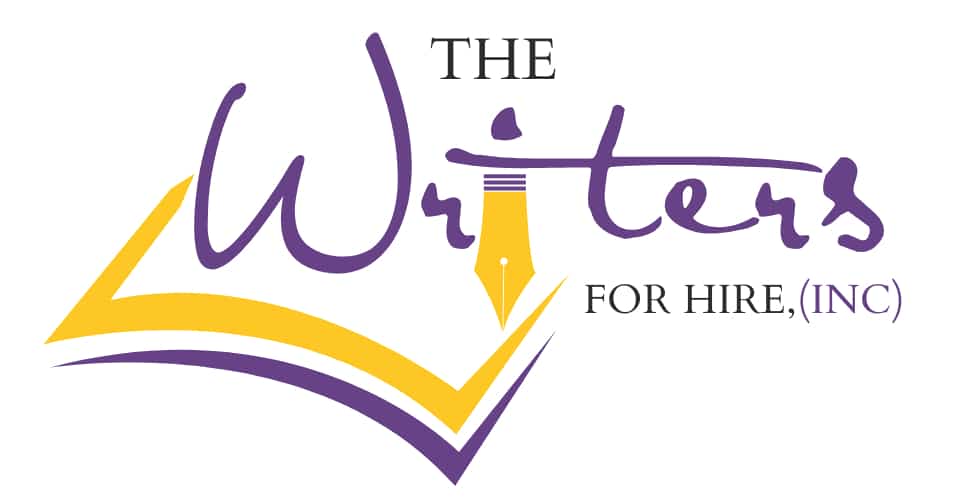15 Strategies for Working With SMEs When Creating SOPs
May 21, 2024
To develop effective standard operating procedures (SOPs), you need to work closely with subject matter experts (SMEs).
These experts bring valuable insights, deep knowledge, and practical experience to the process, ensuring that your SOPs are accurate and complete. Their expertise helps ensure your standards are relevant to the real-world scenarios they address.
Involving SMEs in the creation of your SOPs helps you minimize risks, improve operational efficiency, and maintain compliance with industry standards and regulations. This collaborative approach results in quality SOPs and helps foster a culture of continuous improvement and accountability, enhancing organizational performance and promoting best practices.
What are SMEs?
A SME is an individual who possesses an exceptional level of knowledge, expertise, and proficiency in a specific field, subject, or discipline. Acquired through education, training, and practical experience, this mastery goes beyond competence.
SMEs are recognized authorities, sought after for insights, guidance, and solutions about complex or specialized matters.

These experts play a crucial role in fields such as medicine, law, engineering, and technology.
They are often called upon to contribute information to projects, and to help with problem-solving, decision-making, and the development of standards and best practices.
Why work with SMEs when creating SOPs?
There are several good reasons to work with SMEs when creating your standard operating procedures. The first is that they know their subject matter inside-out. Their expertise adds depth and precision to SOPs and prevents errors or oversights.
Second, collaborating with SMEs boosts the credibility of your SOPs, lending expert authority to this important documentation. SME advice can be especially important when dealing with compliance requirements or safety protocols.
Third, SME involvement promotes a sense of ownership and accountability within your in-house experts, making them more likely to adhere to and champion the SOPs.
Lastly, your SMEs’ insights are needed to help streamline processes, enhance efficiency, and minimize risks, all of which improves your operations.
How To Find the Right SMEs
When creating your SOPs, you need help from the right experts, from either within or outside your organization. When finding the best SMEs to help create your standards, consider the following practical recommendations:
- Define your needs. Clearly identify the specific subject or domain for which you require a SME. Understand the precise skills, qualifications, and experience necessary.
- Tap internal resources. Start by exploring your organization’s talent pool. Seek recommendations from colleagues and department heads, or within your professional network to identify potential internal SMEs.
- Explore external networks. Look beyond your organization. Explore industry associations, online forums, and social networks to connect with potential SMEs. Attend conferences, workshops, or seminars related to your field of interest.
- Do your research. Conduct thorough research to verify the expertise of potential SMEs. Review their credentials, publications, speaking engagements, and professional affiliations.
- Conduct interviews. When you’ve identified potential SMEs, conduct interviews or discussions to assess their knowledge, communication skills, and ability to convey complex information effectively.
- Check references. Contact references provided by the SMEs to gain insights into their previous work, reliability, and professional reputation.
- Outline agreement. Once you’ve identified the right SME, establish a clear agreement outlining their role, responsibilities, compensation, and expected deliverables.
- Communicate continuously. Maintain open and transparent communication with the SME throughout the project, ensuring their expertise aligns with its evolving needs.
What To Look for in the Right SMEs
Here are some key attributes and qualifications to consider when seeking the right SME:
- Expertise and Knowledge. A deep and demonstrable understanding of the subject matter. A SME’s knowledge is usually acquired through formal education, professional experience, and a track record of successful work in the field.
- Relevance. The SMEs’ expertise should be directly relevant to your SOP project’s goals. Their experience should align closely with the specific challenges and objectives covered by your standards.
- Communication Skills. Effective SMEs are adept at conveying complex information clearly and understandably. Their ability to “translate,” communicate, teach, and mentor is essential for knowledge transfer and enabling collaboration.
- Problem-Solving Skills. The right SME should exhibit strong problem-solving abilities. They should be capable of analyzing challenges, proposing solutions, and adapting those solutions to changing circumstances.
- Adaptability. The SME should be adaptable to the project’s unique requirements and receptive to feedback and collaboration. Flexibility in their approach ensures their expert advice can be applied.
- Track Record. Assess the SME’s past work, references, and achievements. A successful history of contributions to similar projects can strongly indicate their suitability.
- Professionalism. The SME should exhibit professionalism, dedication to meeting deadlines, adherence to ethical standards, and a demonstrated commitment to quality and integrity in their work.
- Network and Resources. A well-connected SME may have access to additional resources, contacts, or industry insights that can benefit the project.
- Teaching and Mentoring Experience. If your SOP project involves knowledge transfer or training, a SME with experience in teaching or mentoring can be highly valuable.
- Alignment With Project Goals. The SME’s values, goals, and objectives should align with the project, ensuring a shared vision and commitment to its success.
Consider having a mix of SMEs.Include those with knowledge about each area covered by your SOPs. You might also include some with theoretical knowledge and some with practical experience.
Top Strategies for Working with SMEs When Creating SOPs

Here are 15 top strategies for working effectively with SMEs when developing SOPs:
1. Define roles and expectations.
Clearly outline the roles and responsibilities of both the project team and the SMEs, ensuring that everyone understands their specific tasks and contributions. Establish a project timeline and milestones to track progress, informing SMEs about key dates and deliverables.
2. Keep communication channels open.
Maintain regular and open communication with SMEs throughout the project. This approach includes meetings, email correspondence, and feedback loops to address questions and concerns.
3. Collaborate.
Encourage collaboration and a culture of open dialogue between the project team and SMEs. Invite everyone to share their insights, experiences, opinions, concerns, and suggestions for improvements.
4. Document knowledge transfer.
Record and document all interactions with SMEs, including meetings, discussions, and recommendations. This strategy ensures that no critical information is lost.
5. Validate.
Research, fact-check, and peer review the information SMEs provide to ensure it is accurate and reliable.
6. Offer training at onboarding.
If the project involves new or junior SMEs, offer them training or guidance to bring them up to speed with your SOP project’s objectives, processes, and best practices.
7. Draft and review.
Collaboratively create draft SOPs, allowing SMEs to provide input and review the content. Their expertise can help fine-tune the procedures and make them more practical.
8. Maintain feedback loops.
Establish a systematic process for gathering feedback and revisions. Regularly update the SOP drafts based on SME recommendations and insights.
9. Resolve conflicts.
Anticipate and address any conflicts or disagreements that may arise during the collaboration. A clear conflict resolution process can keep the project on track.
10. Implement quality assurance.
A quality assurance process ensures that your final SOPs meet the highest standards of accuracy and relevance. This step may involve independent audits or third-party reviews.
11. Set up user testing.
If possible, involve end-users or those who will follow the SOPs in testing and reviewing the documents. This approach can provide valuable insights into usability and practicality.
12. Document changes.
Maintain a version control system to track changes and revisions to your SOPs. This focus ensures that the document’s history is transparent.
13. Get SME approval and sign-off.
Seek formal approval and sign-off from SMEs before finalizing the SOPs. Their endorsement adds credibility to the documents.
14. Develop training to implement SOPs.
Collaborate with SMEs to develop training materials to ensure a smooth transition from SOP development to implementation within the organization.
15. Establish a process of continuous improvement.
Encourage ongoing collaboration with SMEs for the continuous improvement of SOPs. Regularly review and update procedures to stay in line with evolving industry standards and best practices.
Top Mistakes to Avoid When Working With SMEs
There are several mistakes organizations commonly make when working with SMEs. Here’s a look at the errors and how to avoid them:
Ignoring Clear Communication
- Mistake: Not establishing clear lines of communication and expectations.
- How to Avoid: Define communication channels, roles, responsibilities, and expectations from the outset. Regularly schedule meetings and maintain an open dialogue.
Lacking Clarity on Project Scope
- Mistake: Failing to define the project’s scope and objectives clearly.
- How to Avoid: Ensure that both the project team and SMEs have a shared understanding of the project’s goals, tasks, and deliverables.
Selecting Inappropriate SMEs
- Mistake: Choosing SMEs without relevant expertise or experience.
- How to Avoid: Thoroughly vet SMEs to ensure their qualifications align with each aspect of your SOP project. Consider a mix of academic knowledge and practical experience.
Micromanaging
- Mistake: Overbearing oversight and micromanagement of SMEs.
- How to Avoid: Trust SMEs’ expertise and avoid micromanagement. Instead, foster a collaborative environment that allows them to contribute effectively.
Ignoring Feedback
- Mistake: Neglecting or dismissing feedback from SMEs.
- How to Avoid: Actively solicit and value their input. A willingness to incorporate their suggestions fosters trust and collaboration.
Inadequately Transferring Knowledge
- Mistake: Not adequately transferring knowledge from SMEs to the project team.
- How to Avoid: Implement a structured knowledge transfer process, including documentation, training, and mentoring, to ensure a seamless exchange of expertise.
Failing to Validate Information
- Mistake: Accepting information from SMEs without validation.
- How to Avoid: Independently verify information through research and cross-referencing to ensure accuracy and reliability.
Allowing Scope Creep
- Mistake: Allowing the project’s scope to expand beyond the original objectives.
- How to Avoid: Clearly define the project’s boundaries and objectives and resist the temptation to add unrelated elements to the project.
Inadequately Documenting
- Mistake: Neglecting to document interactions, decisions, and recommendations.
- How to Avoid: Maintain thorough documentation of all discussions and decisions with SMEs to track changes and ensure transparency.
Being Too Rigid
- Mistake: Sticking rigidly to initial plans without considering SME feedback about needed modifications.
- How to Avoid: Be open to adjustments and changes as needed, based on valuable insights from SMEs, to improve the project’s outcomes.
Excluding End-Users
- Mistake: Excluding the end-users’ perspective when reviewing SOPs.
- How to Avoid: Involve potential end-users in the testing and review process to ensure the practicality and usability of the final procedures.
Overlooking Conflict Resolution
- Mistake: Ignoring conflicts or disagreements among team members or with SMEs.
- How to Avoid: Establish a clear conflict resolution process to address disputes and maintain project momentum.
Rushing the Approval Process
- Mistake: Hasty approval and sign-off without due diligence.
- How to Avoid: Ensure that SMEs thoroughly review and endorse the final documents before approval to maintain quality and credibility.
Neglecting Continuous Improvement
- Mistake: Treating SOP development as a one-time task rather than an ongoing process.
- How to Avoid: Facilitate continuous partnerships with SMEs. Use periodic reviews and updates to keep SOPs aligned with changing requirements.
Final Thoughts
The selection of the right SMEs is pivotal in the development of your SOPs. The expertise and insights of well-chosen SMEs can significantly enhance your documents’ quality and effectiveness, ensuring they meet industry standards and organizational needs.
In contrast, inadequately chosen SMEs may result in delays, subpar documentation, and a higher likelihood of revisions and additional work.
Choosing the right SMEs from the outset helps you lay the foundation for streamlined processes, regulatory compliance, and operational efficiency. In short, the right SMEs can help maximize the value of the SOPs you spend your valuable time creating.































